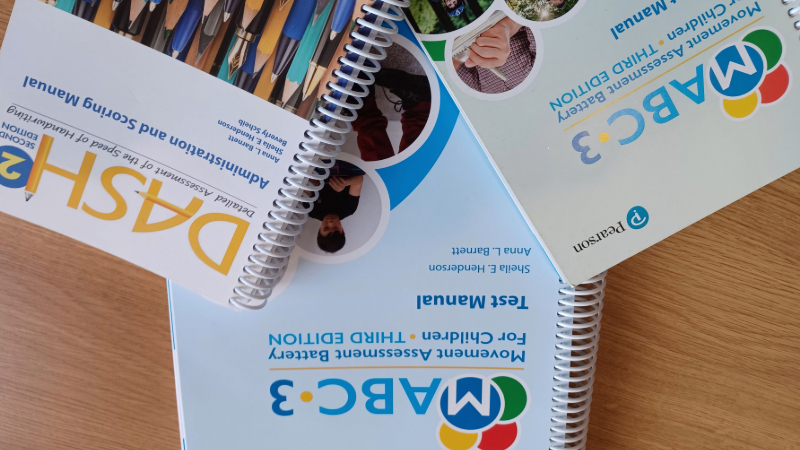Assessments designed by an Oxford Brookes professor go global

New and improved tests devised by an Oxford Brookes University professor to help people with conditions such as Development Coordination Disorder (DCD) are now being used internationally.
The tests, developed by Anna Barnett, Professor of Psychology at Oxford Brookes and published by Pearson are already widely used by health professionals, schools and parents to identify and support people with conditions such as DCD, also known as dyspraxia. These assess different areas of motor control and co-ordination, including throwing, catching, balancing and handwriting.The tests were previously designed only for children and used data obtained from the UK. They now cater for people aged three to 25 and use updated UK data, as well as data gathered from other countries.
Professor Barnett said: “We know these difficulties can lead to serious issues in school and are a concern for parents, teachers and for a child who may lag behind when they should be doing very well. It’s important we recognise them and put in appropriate support.
“The improved tests use data gathered from Australia, New Zealand and the UK. These are countries with similar languages and education systems. It makes sense to pull the data together and it means the tests are appropriate to use across these and other similar regions.
“We extended the age range because research on individuals with these difficulties shows they don’t just disappear in adulthood. We needed ways to assess young adults as well as children and there aren’t many tools around.
“I’m pleased the earlier editions of these tests have become so popular in schools and clinics around the world. The new tests have already been translated into Dutch so they can also be used in the Netherlands and we are getting interest from other countries.”
The newly published test manuals include the Movement Assessment Battery for Children, Third Edition to assess motor coordination and the Detailed Assessment of the Speed of Handwriting Second Edition (DASH-2), used to assess handwriting speed.
Professor Barnett added: “The DASH is now widely used in schools for children who struggle with handwriting. It may be that handwriting difficulties are holding them back from doing their best in a written exam. They may need to be allowed to type their answers or have a scribe.”
“Any primary school classroom will have children writing for quite a portion of the day and class tests are still handwritten. Even most University exams are still handwritten. Those with conditions like Developmental Coordination Disorder/dyspraxia need support, as do those with physical conditions that might affect their fine motor skills like juvenile arthritis.
“These tests are used by members of organisations like the Professional Association of Teachers of Students with Specific Learning Difficulties as well as occupational therapists. We provide training for them and we are getting lots of requests to present our work at conferences and provide training courses.”
Professor Barnett worked on the resources with co-authors, Sheila Henderson and Beverly Scheib.
